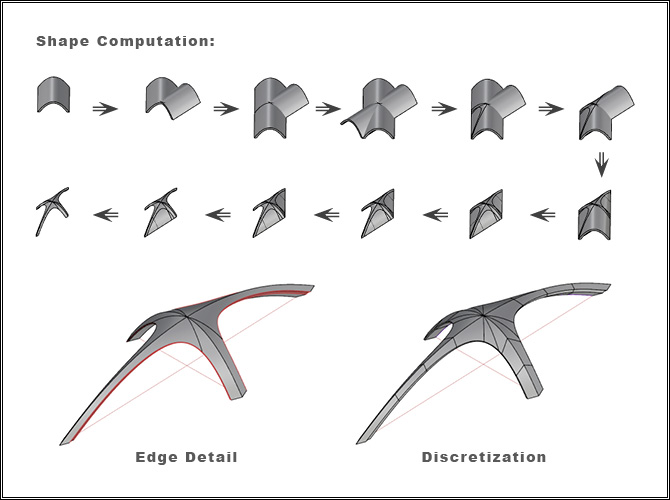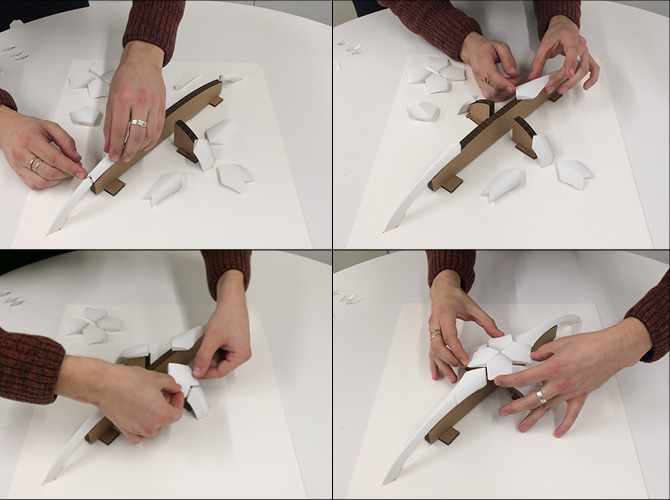Abstract:
This thesis presents a computational design methodology intended to help architects and designers work visually, learn to design creatively with structural principles, and build constructive intuition; to feel the forces in shapes.
The method unites proportional rules to describe the underlying geometry of shapes and graphical equilibrium analysis techniques to validate their stability. Shapes are used as “primitives” for a generative machinery that defines a formal language [shape grammar] characterized by a compression-only material constraint - setting a basic criterion that the compressive forces of a structure should fall within the boundaries of the matter.
The proposed method permits architects to design non-deterministically and guarantees they are only producing designs that can be built - ultimately developing an intuition for designing directly with the matter and forces and play.
Link to the full paper “Computing with Matter, Shapes, and Forces: Toward Material Primacy in Architecture” (MIT 2017)
This thesis presents a computational design methodology intended to help architects and designers work visually, learn to design creatively with structural principles, and build constructive intuition; to feel the forces in shapes.
The method unites proportional rules to describe the underlying geometry of shapes and graphical equilibrium analysis techniques to validate their stability. Shapes are used as “primitives” for a generative machinery that defines a formal language [shape grammar] characterized by a compression-only material constraint - setting a basic criterion that the compressive forces of a structure should fall within the boundaries of the matter.
The proposed method permits architects to design non-deterministically and guarantees they are only producing designs that can be built - ultimately developing an intuition for designing directly with the matter and forces and play.
Link to the full paper “Computing with Matter, Shapes, and Forces: Toward Material Primacy in Architecture” (MIT 2017)
Master of Science Thesis, SMArchS Design Computation, MITCambridge, MA
2014
Thesis Advisor:
George Stiny
Thesis Readers:
John Ochsendorf and Terry Knight
2014
Thesis Advisor:
George Stiny
Thesis Readers:
John Ochsendorf and Terry Knight



